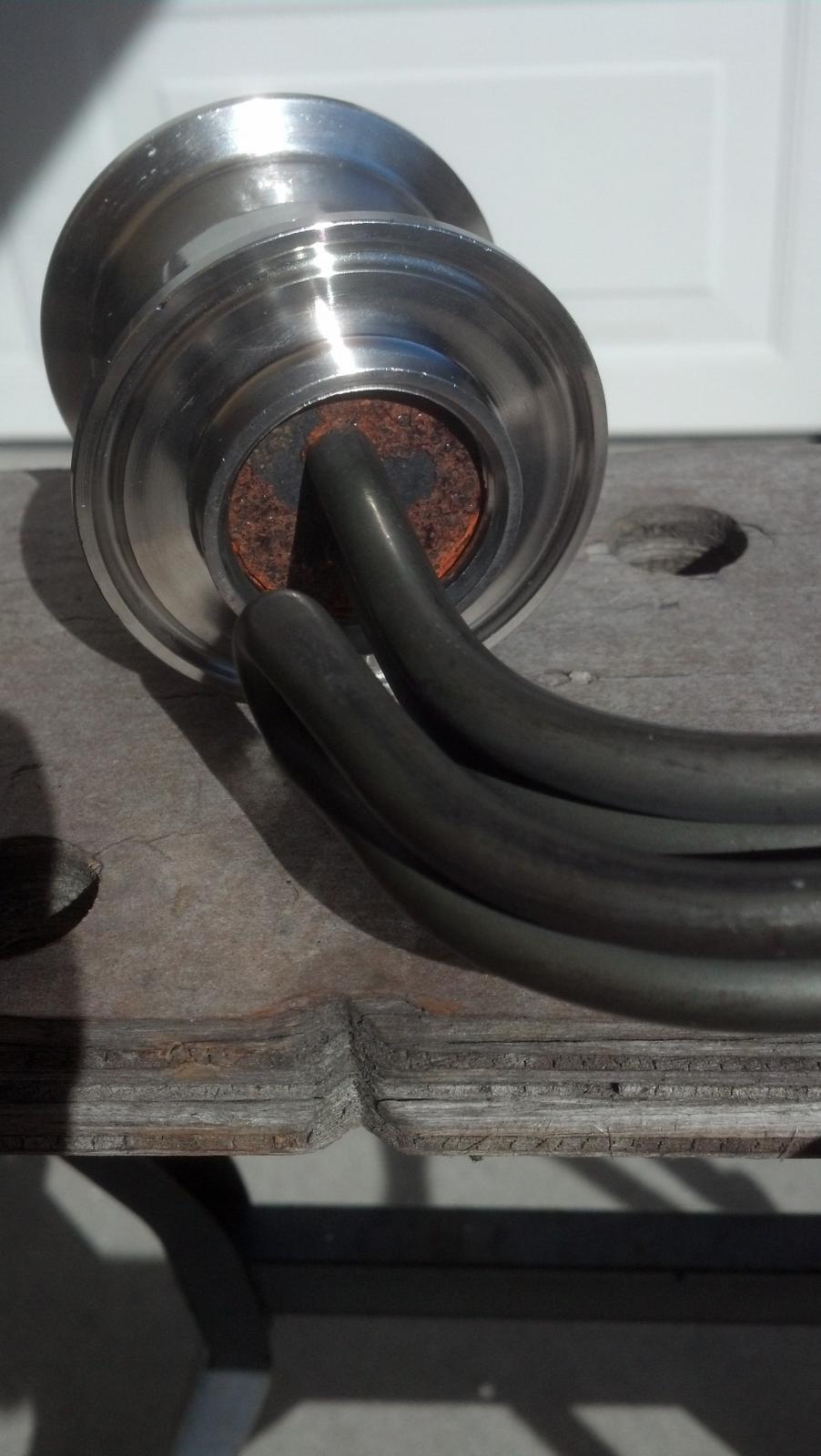Over the last year and a half I have been struggling with a flaw in my system. Every beer that I have made has just not tasted good at all. For a while, I took some time off from brewing because of this, only to come back at it harder. After cleaning almost every part of my system I thought I had isolated it to only find that it was still with me.
...and then I looked at my HERMS system which is where boil water at the end of the brew day and recirculate it throughout the system. Holy schnitzengruben - my jaw dropped - take a look at the pic!! And that is after 30 min of a heavy BKF cleaning with an extra Braun spinning head tooth brush! I knew that the element I use in my system was only temporary until I had more money to spend on a SS element. I NEVER thought it would rust out so quickly... but now I know. Changing to the brew hardware SS element with TC as soon as it arrives.
Then I checked my input/output connections to the same unit and found that I also had a piece of CHINA SS 304 tee which was rusted too. I also BKF cleaned it with my brush and it still has discoloration. The point I am driving at people is to check where you get your 304 or 316 from as it is apparent to me that some of the metal foundries over there are cheating. Not so shocking given all the other forms of cheating going on... like the latest craze of some arseholes taking a simple walnut and shucking the nut inside only to replace it with a rock and gluing it shut - really???!!
So as a result - I was recirculating nasty rusty water through my pipes and silicon tubes. No wonder the beer was cr@p.
My problem --> I have been to a number of tool shops this week and no one has a bit that gets around the nut inside my Still Dragon unit but still fits inside the hole. I can't get it out with simple needle nose pliers which is how I put it in... anyone have any ideas or a tool for this?

...and then I looked at my HERMS system which is where boil water at the end of the brew day and recirculate it throughout the system. Holy schnitzengruben - my jaw dropped - take a look at the pic!! And that is after 30 min of a heavy BKF cleaning with an extra Braun spinning head tooth brush! I knew that the element I use in my system was only temporary until I had more money to spend on a SS element. I NEVER thought it would rust out so quickly... but now I know. Changing to the brew hardware SS element with TC as soon as it arrives.
Then I checked my input/output connections to the same unit and found that I also had a piece of CHINA SS 304 tee which was rusted too. I also BKF cleaned it with my brush and it still has discoloration. The point I am driving at people is to check where you get your 304 or 316 from as it is apparent to me that some of the metal foundries over there are cheating. Not so shocking given all the other forms of cheating going on... like the latest craze of some arseholes taking a simple walnut and shucking the nut inside only to replace it with a rock and gluing it shut - really???!!
So as a result - I was recirculating nasty rusty water through my pipes and silicon tubes. No wonder the beer was cr@p.
My problem --> I have been to a number of tool shops this week and no one has a bit that gets around the nut inside my Still Dragon unit but still fits inside the hole. I can't get it out with simple needle nose pliers which is how I put it in... anyone have any ideas or a tool for this?





